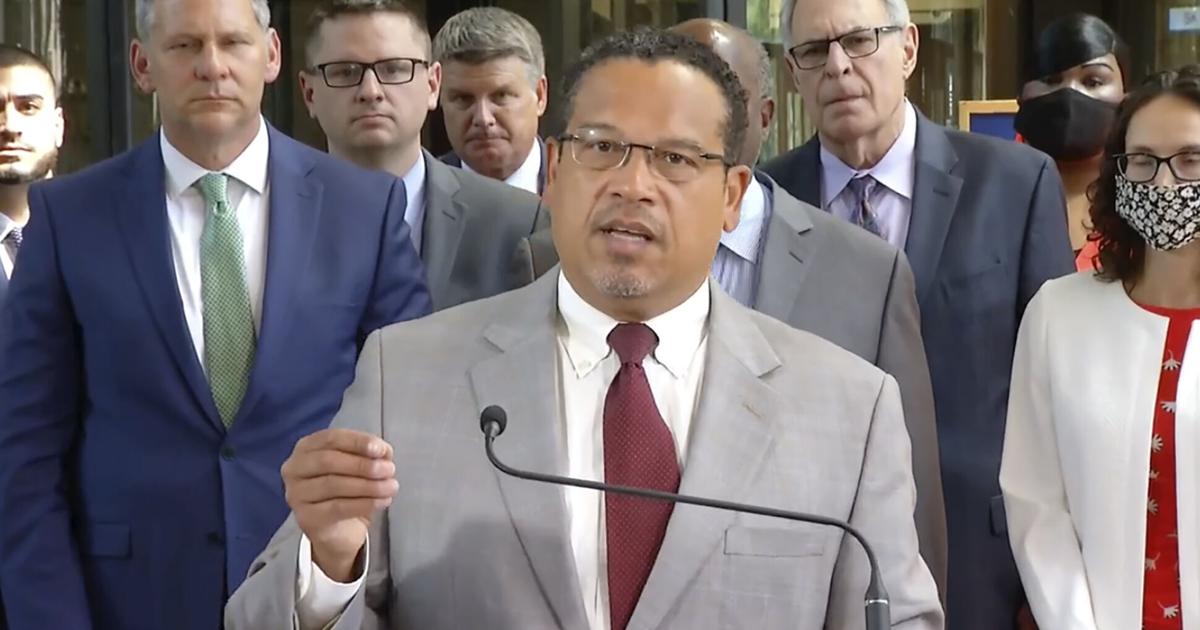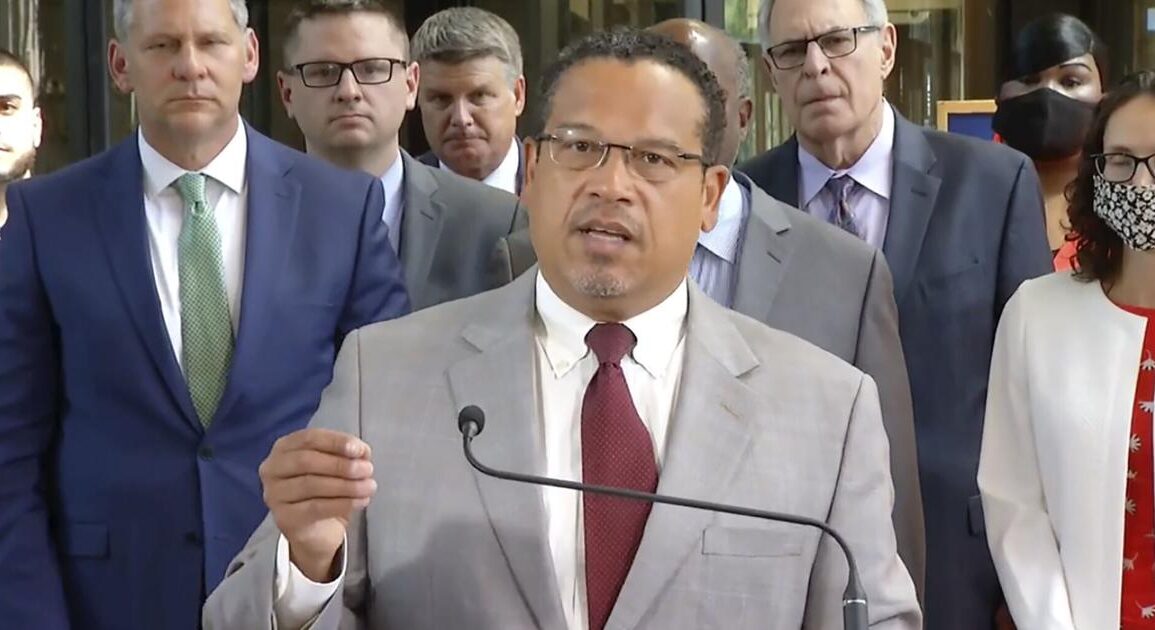
There are rare instances in American public life when the right person is in the right place at the right time. Such was the case in 2020 when Keith Ellison took charge of the prosecution of the Minneapolis police officer who murdered George Floyd Jr.
Ellison, who will join the Cap Times Idea Fest on Wednesday, Sept. 20, came to the Floyd case as a longtime advocate for criminal justice reform who had served as a Minnesota state legislator and as a U.S. representative who chaired the Congressional Progressive Caucus.
Elected as Minnesota’s attorney general in 2018, he was barely a year into his tenure when Floyd died on the night of May 25, 2020, after police officer Derek Chauvin knelt on the 46-year-old Black man’s neck for 9 minutes and 29 seconds. A bystander, 17-year-old Darnella Frazier, videotaped the horrific scene as Floyd pleaded for mercy and finally gasped, “I can’t breathe.”
The video went viral. Demonstrations erupted across the United States and around the world. Millions filled the streets as part of a Black Lives Matter movement that demanded, “Justice for George Floyd.”
But there was no guarantee of justice. Too many Black men and women had died in police custody without adequate investigations and without anything akin to accountability for the officers involved — or for the system that has allowed police violence to continue.
Ellison knew that history. He had been working on police accountability issues for decades. And he recognized the combination of hard work and clarity that would be required.
“We need a vision that says there’s going to be accountability,” he told me a few days after Floyd’s death. That conversation took place at a time when a local district attorney was still managing the case. But there were already calls from Floyd’s family for the attorney general to take over the prosecution. And members of the Minneapolis City Council were urging Ellison to step up.
Ellison was thoughtful and judicious, but he left no doubt about his sense that the nation was at a crossroads — and that it needed to head in the direction of police accountability, criminal justice reform and broader systemic change.
Ellison recognized that a vital part of the vision had to involve the prosecution of Chauvin and the officers who were with him on the night Floyd died. So when the moment came, the attorney general’s office answered the call and took over the prosecution. He assembled a team of top lawyers who would try the case, provided them with strong support and became the public face of the project that secured Chauvin’s conviction in April 2021 on charges of second-degree unintentional murder, third-degree murder and second-degree manslaughter for his role in Floyd’s death.
The successful prosecution of Chauvin made international news. Ellison was featured on CBS’s “60 Minutes” and other programs in the U.S. and abroad. Last year, he was reelected to a second term as attorney general. Yet he was not satisfied. As he told me again and again during interviews before and after the trial, it is vital to put Floyd’s murder in context.
“(The) police are now and have always been in place to maintain the legal/social order,” Ellison explained to me. “If that’s a just social order, that’s one thing. If it’s one based on slavery, Jim Crow segregation, capital and big business abusing labor, then the police have always played this role where they are the ones who sort of maintain that social hierarchy.”
Then he got to the heart of the matter with an argument not just for criminal justice reform but for systemic reforms that focus on economic, social and racial justice.
“It’s important to understand you can’t look at the police in isolation,” said Ellison. “A lot of times we do that because what they do is so flagrant. I mean, the knee on the neck, right? Or the shooting of (African American youth) Laquan McDonald, where (Chicago police officer Jason Van Dyke) wrote in his report that (McDonald) attacked him with a knife, when he was so clearly assassinated on the street. Same thing with Walter Scott (an unarmed African American man killed by a police officer in South Carolina), who was running away and was shot.
“The question is, why do these cases so often result in either no charge, no grand jury bill of indictment like in the Mike Brown case (in Ferguson, Missouri), no conviction, hung juries? I mean, we all saw what happened to Philando Castile — live on Facebook — who was shot down by officer Jeronimo Yanez (in Falcon Heights, Minnesota), and yet there was no conviction in that case. It’s just almost impossible to imagine it wouldn’t have resulted in a conviction, but it didn’t. Or what about Freddie Gray? Perfectly healthy, they throw him in that (Baltimore police) van, and he comes out dead, and next thing you know, all these officers are charged, and yet no one is held accountable for the death of Freddie Gray.
“There’s got to be some element of complicity and culpability on behalf of the system that sends the officers out there.” And, says Ellison, that’s why the system must change.
Ellison makes the call for that change in his groundbreaking new book, “Break the Wheel: Ending the Cycle of Police Violence,” which we’ll discuss on Sept. 20 in what promises to be a truly compelling Idea Fest session.
This post was originally published on this site be sure to check out more of their content.







